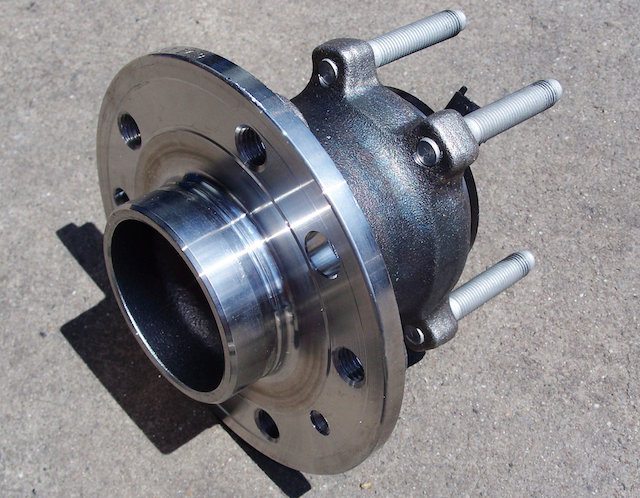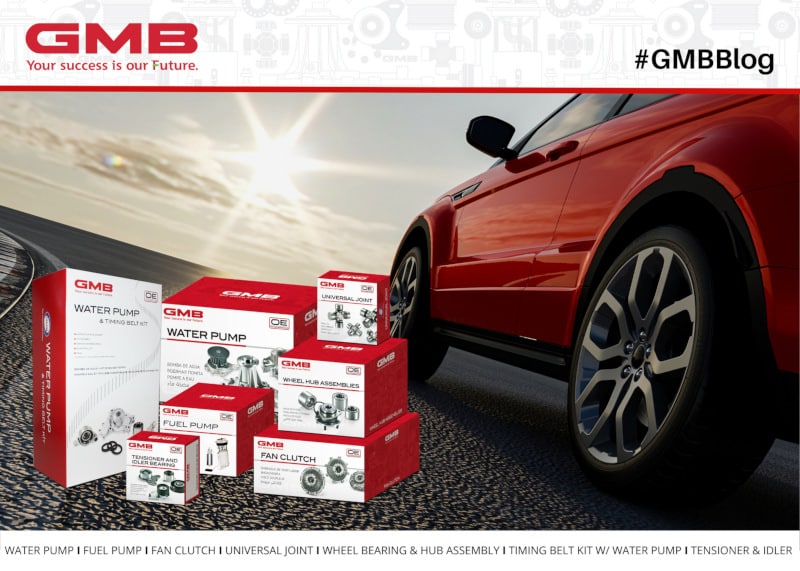Symptoms of a Worn Wheel Hub Bearing
The purpose of a wheel bearing is simpleto allow the wheel to spin with as little friction as possible. When a wheel bearing malfunctions, it lets you know something’s wrong by making noise.
Even if you’re hearing tons of noise while on the road, diagnosing a broken wheel bearing can be a tricky task. Whether caused by excessive heat, water damage, an unfortunate pothole, corrosion, or normal wear and tear, there are a variety of noises that could indicate a broken wheel bearing.
Broken Wheel Bearing Noises

Knocking
If you hear a knocking sound while turning, it could indicate a problem caused by the added stress on your CV-joints or U-joints.
Snap, Crackle, and Pop
It turns out that some defunct wheel bearings and a certain crisped rice cereal make the same noises. If you hear these sounds in your car and there’s no cereal to blame, it could be a sign of excessive bearing endplay because of inadequate clamping. You’ll typically hear this sound when making sharp turns.
Humming, Rumbling, or Growling
Is there a monster under the car?
Nope, that growling you hear beneath your feet is probably a busted wheel bearing. It usually presents itself when driving in a straight line or turning slightly at 15 to 50 mph.
Side Pulls During Brake Application
When bearings become severely loose, it can cause excessive runout, which causes the brakes to pull. Whichever side your car pulls to is the side of the failed wheel bearing.
Grinding While Driving
A grinding noise while your vehicle is in motion typically means there’s damage in the wheel-end system. But if related to a bearing issue, it also suggests loss of integrity such as roller or raceway damage.
Uneven Tire Wear
There are plenty of common reasons why tires wear unevenlymisalignment, a damaged suspension, and low air pressure to name a few. However, extreme bearing wear and looseness can cause it, too. However, you’ll probably hear the broken wheel bearing before it causes uneven tire wear.
Uneven Brake Pad Wear
Like uneven tire tread, uneven brake pad wear can indicate extreme bearing wear or looseness. However, the usual causes of uneven brake pads are not bearing related.
Wheel Vibration and Wobble
Usually caused by worn tires or extreme chassis misalignment, wheel vibrations and wobble could mean your bearing has lost its clamp or has severe mechanical damage.
Replacing Your Broken Wheel Bearing
Typically, it takes some time for wheel bearings to completely fail once they start making noise. However, it’s not safe to drive on them, and you should get them replaced as soon as possible with an OEM quality wheel bearing from GMB.
MORE CONTENT
Stay current!
Sign up here to get the latest news
and updates on all things GMB.
Sign Up To Receive GMB News & Updates!

